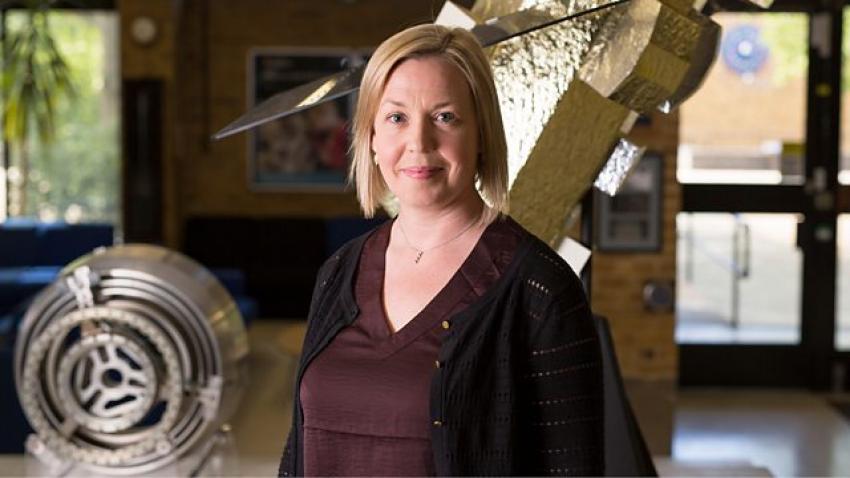Two former presidents of the Royal Astronomical Society (RAS) are among four astronomers who have been recognised in the 2024 New Year Honours list.
The University of Leicester’s Professor Emma Bunce and Professor Mike Cruise, of the University of Birmingham, are both awarded the Officer of the Order of the British Empire (OBE).
Professor Bunce, who was president of the RAS from 2020-2022, is appointed an OBE for services to astronomy and science education, while Professor Cruise – RAS president from 2018-2020 – is named OBE for services to space science.
Space scientist Dr Maggie Aderin-Pocock, who is chancellor of the University of Leicester, is given a damehood in the honours list for services to science education and diversity.
Dr Aderin-Pocock is best known for presenting the BBC’s The Sky at Night and CBeebies Stargazing, as well as working on NASA’s James Webb Space Telescope.
She has also helped the UK’s Ministry of Defence develop aircraft missile warning systems and hand-held instruments to detect landmines.
Professor Philip Diamond, director-general of the Square Kilometre Array (SKA) Observatory, becomes a Commander of the Order of the British Empire (CBE).
He is recognised for services to global radio astronomy – the SKA Observatory will be the largest radio telescope in the world when it is completed in 2028.
Professor Bunce is currently playing a key role in the European Space Agency’s (ESA) JUICE mission to Jupiter, which launched earlier this year.
She is also the principal investigator for the Mercury Imaging X-ray Spectrometer (MIXS) instrument on the BepiColombo mission to Mercury, which is a joint venture between ESA and the Japan Aerospace Exploration Agency (JAXA).
Speaking about her OBE, Professor Bunce said: “I am absolutely delighted and honoured to receive this recognition.
“Everything that we do in space science is a team effort, and I am hugely grateful to have worked alongside many wonderful colleagues, students, and collaborators in the School of Physics and Astronomy and beyond.”
Professor Cruise, who is now the treasurer of the RAS, works on the study of gravitational waves using ground based and space based facilities.
He is also involved in space experiments with ESA and the UK Space Agency (UKSA).
Professor Mike Edmunds, president of the Royal Astronomical Society, said: “It is always a joy to see friends and colleagues honoured for their services to science and education.
“As well as their significant contributions to research, both Emma Bunce and Mike Cruise have generously given much of their time, enthusiasm and wisdom to the RAS.”
He added: “Phil Diamond is a wonderful leader in the very important international Square Kilometre Array radio telescope project.
“I have watched Maggie Aderin-Pocock’s career with great interest – her enthusiasm for astronomy and her warmth are simply inspirational to all, even old-timers like me!
“It is really encouraging to see her outstanding work in science education, particularly with young people and minorities, recognised by her becoming a dame.”
Media contacts
Robert Massey
Royal Astronomical Society
Mob: +44 (0)7802 877699
Sam Tonkin
Royal Astronomical Society
Mob: +44 (0)7802 877700
Notes for editors
The Royal Astronomical Society (RAS), founded in 1820, encourages and promotes the study of astronomy, solar-system science, geophysics and closely related branches of science. The RAS organises scientific meetings, publishes international research and review journals, recognises outstanding achievements by the award of medals and prizes, maintains an extensive library, supports education through grants and outreach activities and represents UK astronomy nationally and internationally. Its more than 4,000 members (Fellows), a third based overseas, include scientific researchers in universities, observatories and laboratories as well as historians of astronomy and others.
The RAS accepts papers for its journals based on the principle of peer review, in which fellow experts on the editorial boards accept the paper as worth considering. The Society issues press releases based on a similar principle, but the organisations and scientists concerned have overall responsibility for their content.
Keep up with the RAS on X, Facebook, Instagram, LinkedIn and YouTube.
Download the RAS Supermassive podcast


